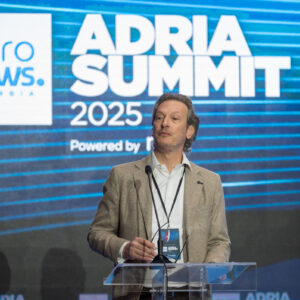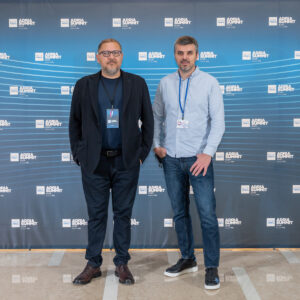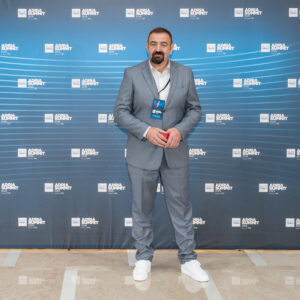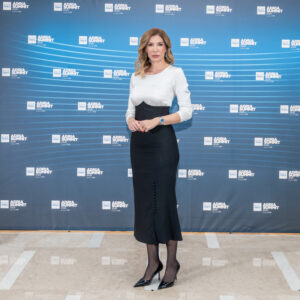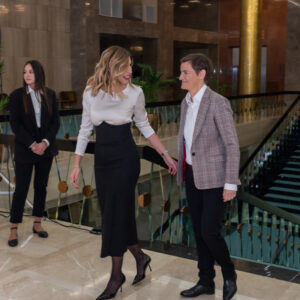The first “Euronews Adria Summit” was held at the Palace of Serbia on November 12, an event organized by Euronews that, through this conference, established a new platform for regional dialogue and cooperation in the Western Balkans

During the Euronews Adria Summit, discussions covered geopolitical challenges, preparations for EXPO 2027, economic forecasts for 2026, the relationship between the media and politics, diplomatic perspectives, and steps toward European integration. Participants included leading figures from the region’s political, business, and media sectors, with special sessions such as a one-on-one interview with Serbian Prime Minister Đuro Macut, an economic panel titled “Money Never Sleeps,” and final talks on the EU and the Western Balkans.
Minja Miletić, Euronews’ Regional Director, opened the Adria Summit by emphasizing the importance of dialogue between the Western Balkans and the European Union, highlighting that the EU is not merely an idea but a society based on dialogue, the rule of law, respect for diversity, and media responsibility.
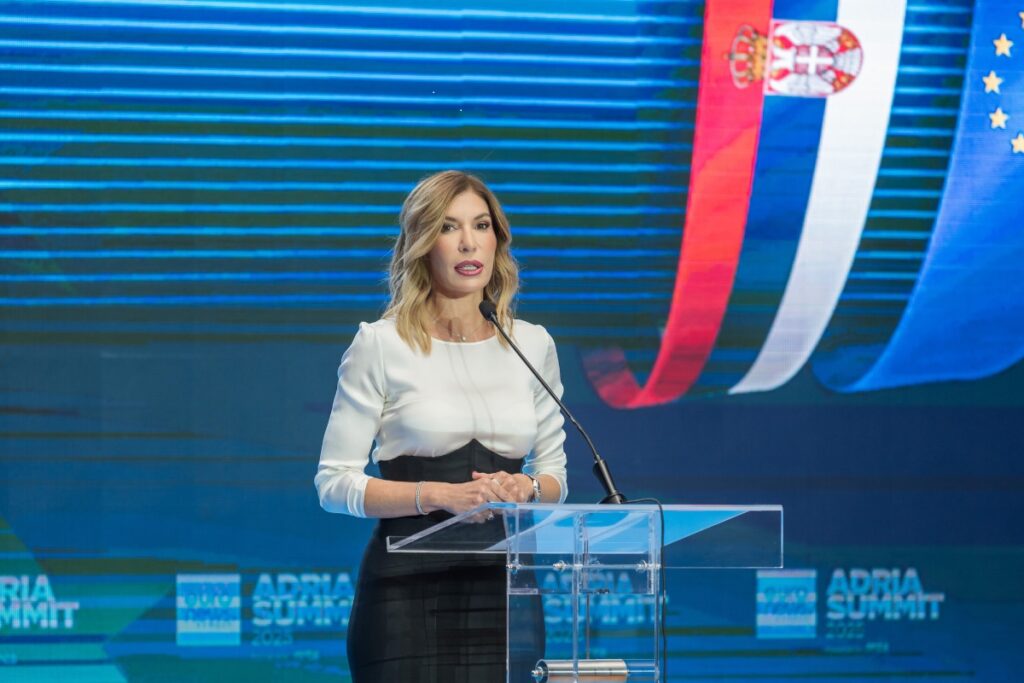
She stated that “the EU is everything we aspire to be, a society that believes in dialogue, not division.”
Miletić described the Summit as more than a media event, calling it an invitation for dialogue between Brussels and the Western Balkans, among politicians, citizens, institutions, and journalists who tell the stories that shape the region. She praised the people of the region, particularly young and innovative minds and journalists who understand that objectivity is not distance but responsibility, adding that “the blend of rational and emotional makes the Western Balkans unique.”
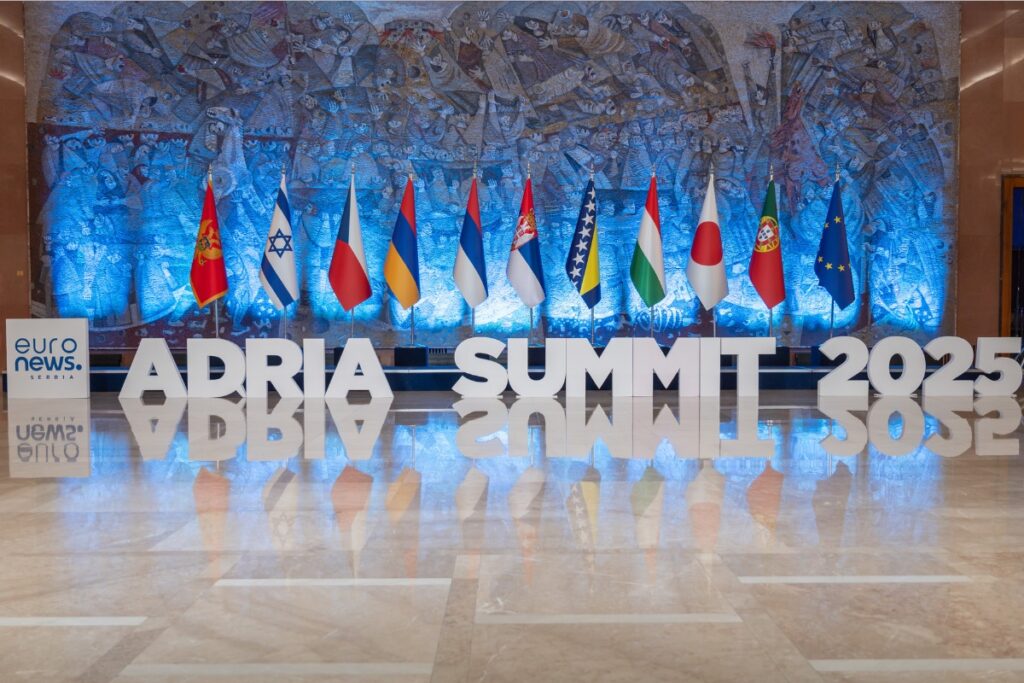
Vladimir Lučić, CEO of Telekom Srbija, in his opening remarks, thanked the Euronews team for their excellent work over the past few years.
“Through our partnership, we have been developing socially responsible initiatives, promoting Serbia and this region, helping EU countries learn the real facts about us, and supporting Serbia’s faster integration into the European community. I want to thank Euronews for their outstanding work over the past few years,” Lučić said.
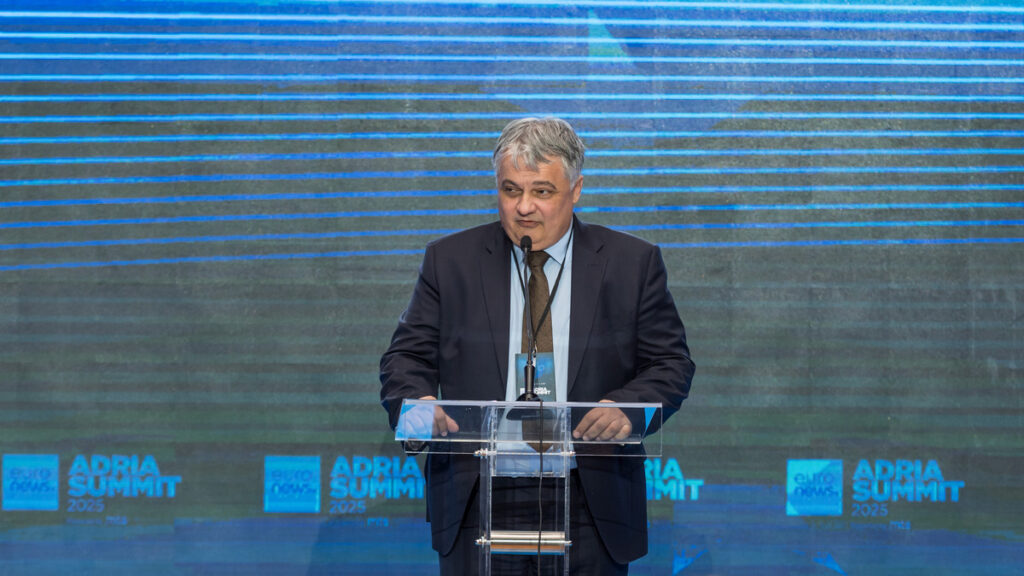
Ana Brnabić, President of the National Assembly, stated that Serbia has three key reasons for pursuing the European path.
“The EU is the greatest and most successful peace project in the history of humankind,” she emphasized, adding that the Union “has largely, if not entirely, brought peace to the European continent,” and that the Western Balkans must be part of such a project in order to “turn toward the future and perceive the past differently.
As the second reason, Brnabić underlined that EU membership has brought more benefits than harm to all member states, especially those that were economically weaker.
“I’m not saying the EU is perfect or that everything is ideal,” she added.

The third reason, she said, concerns reforms:
“All the reforms we are implementing on the EU path are, above all, in our own interest. We often say we’re doing them because the EU demands it, but they are truly in our own interest.
In conclusion, Brnabić called for dialogue to determine collectively whether Serbia is truly on the European path.
“The opening of Cluster 3 is a success for Serbia. When we begin to see it that way, and when all pro-European parts of society work together, we will be able to accelerate reforms. I’m confident Serbia has the capacity to make up for lost time and complete this process quickly and efficiently but we need dialogue,” she stressed.

The Prime Minister of Serbia, Prof. Dr. Đuro Macut, stated that Serbia is “very close” to EU membership, but that the key obstacle lies in the political decisions of the member states.
“In every technical sense, we have met all the conditions to be part of Europe, but it ultimately depends on the decision of the member states to allow our accession,” he said, noting that there is a “trigger moment” for opening Cluster 3.
When asked about the European Commission’s report, Macut acknowledged that it could be interpreted as a criticism but reminded that Serbia has made “significant progress” and that in recent months it has “accelerated its own reform process,” which, he emphasized, the government intends to continue taking responsibility for.

At Panel 1, titled “The Region Between East and West,” Minister of Foreign Affairs Marko Đurić stated that the United States, like other major powers, views the Western Balkans as a region, rather than through individual bilateral relationships.
“We are a system of communicating vessels,” he said, stressing that joint lobbying brings greater attention, investment, and innovation, while internal frictions divert interest.

“To the extent that we are able to lobby jointly for one another, rather than against each other, we will be able to attract investment, innovation, and political attention from the United States,” Đurić emphasized, warning that the perception of the region as one of conflict and instability translates into missed opportunities.
He concluded by noting that “when the region lobbies together, America listens — but when we argue among ourselves, opportunities slip away.”
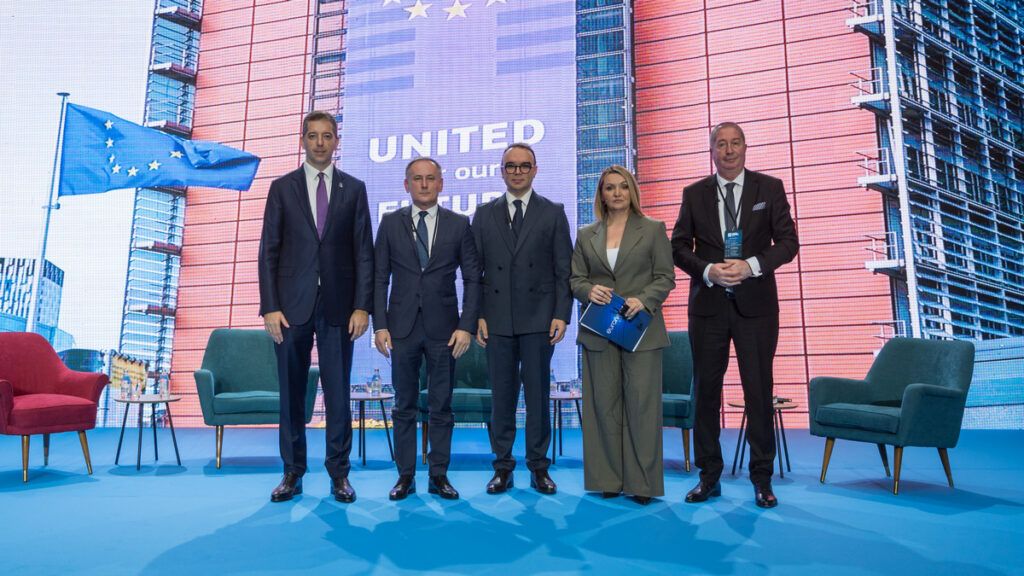
The Ambassador of Bosnia and Herzegovina to Serbia, H.E. Aleksandar Vranješ, stated that there has been a significant shift in the U.S. position toward Bosnia and Herzegovina. Referring to the UN Security Council session held on October 31, he noted that the head of the U.S. mission said Washington would “no longer interfere in internal affairs or engage in state-building experiments” and would instead rely on internal dialogue among representatives of the three constituent peoples.
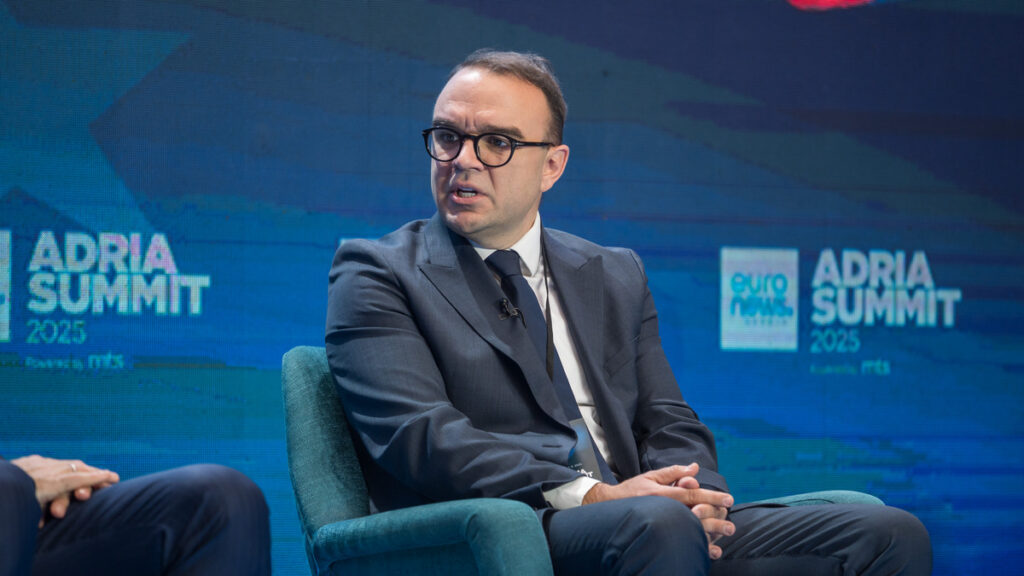
Vranješ recalled that in previous decades, the prevailing model had been one of strong external intervention through the Office of the High Representative (OHR) and the Bonn Powers, aimed at centralization at the expense of the Dayton-established entities. “The very fact that the United States has taken the position that it will no longer engage in this marks a turning point,” he emphasized, adding that such an approach opens space for dialogue without pressure. The lifting of sanctions, he said, should be seen “in that context” — as a signal that solutions are to be sought through the consensus of the three constituent peoples for the benefit of Bosnia and Herzegovina.
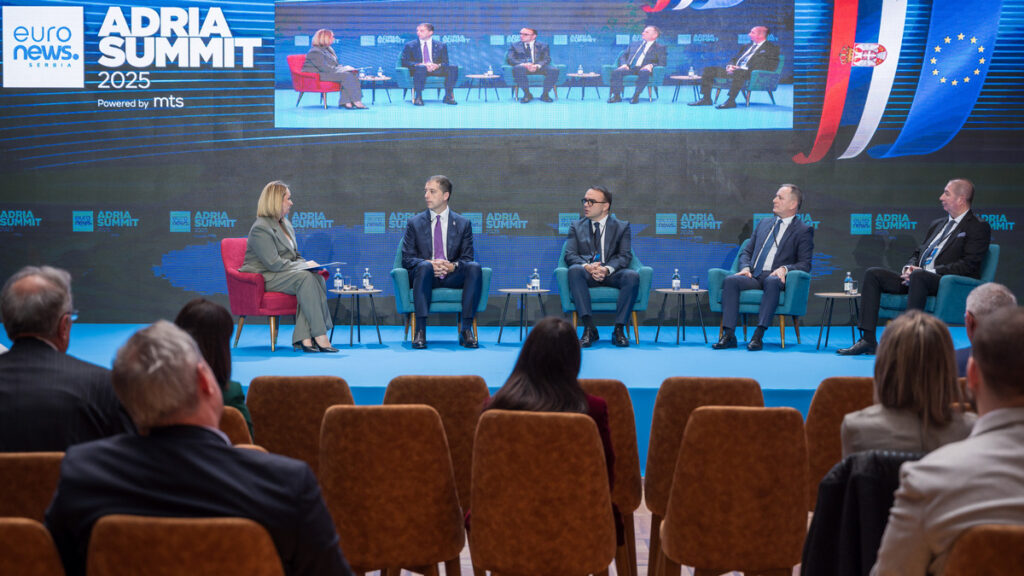
The Ambassador of Hungary to Serbia, H.E. József Magyar, stated that relations between Washington and Budapest have an impact on the entire region.
He noted that the relationship between Budapest and Donald Trump has continuity that predates current developments, adding that their most recent meeting on November 7 was “of historic importance.” He recalled the “direct and personal” ties between Viktor Orbán and Trump and emphasized Hungary’s role in peace and cooperation initiatives.
“The only foreign minister invited to the signing of the Abraham Accords in 2020 was Péter Szijjártó,” he said, adding that Trump had repeatedly “highlighted Orbán as a valuable politician who cares about his country and his nation.” Magyar stressed that Hungary maintains open channels with Washington, Beijing, and Moscow, which it uses to secure energy supplies and support development.
“There are no sanctions against Hungary; we are moving forward with our nuclear program,” he said, adding: “We are entering new technologies and want the Washington–Budapest relationship to progress peacefully, with a positive impact on the entire region.”

Magyar also stated that Hungary does not support imposing sanctions on the Russian Federation but instead advocates for dialogue, noting that Russian energy resources remain the most affordable not only for Hungary but also for other countries. “In the West, they won’t say it openly, but Russian energy is still the most cost-effective today. In terms of delivery and transit as well, it remains the most favorable,” he said.

Speaking about U.S. sanctions on Russian oil, the Hungarian ambassador emphasized the importance of maintaining an open dialogue with the United States so that Washington remains aware of Hungary’s physical and geopolitical circumstances. “The purpose of everything is for our economy to have broad partnerships, and secondly, we must not forget that in European countries, governments are elected by their own citizens. The Hungarian people have chosen a government led by Viktor Orbán. We must remain open to diversification and establish partnerships whether in steel, electricity, or other sectors,” Magyar concluded.
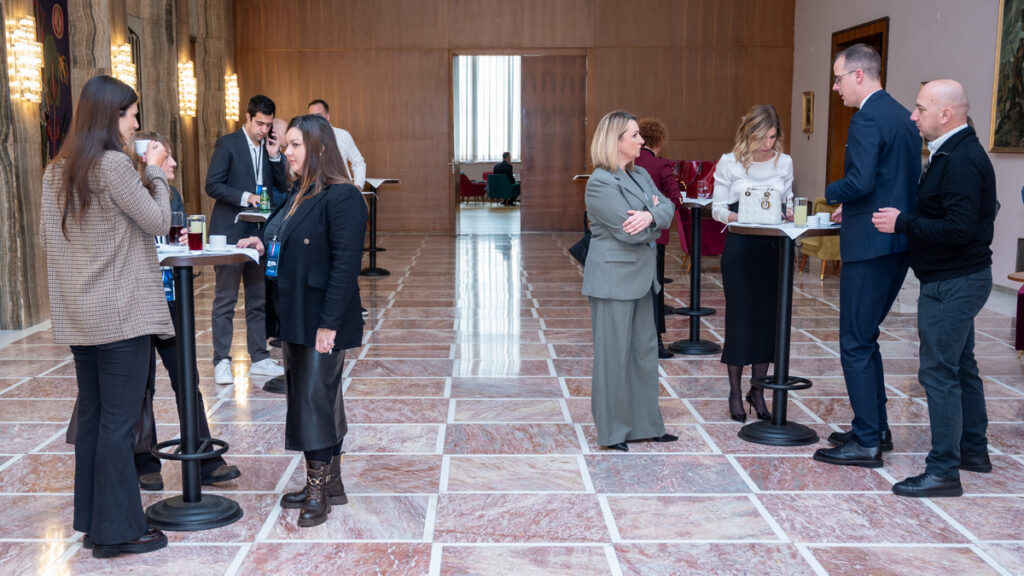
The Ambassador of Montenegro to Serbia, Nebojša Đoković, stated that relations with the United States are “extremely friendly, substantial, and multifaceted,” emphasizing that Washington strongly supports Montenegro’s path toward the European Union. “Even before the Trump administration, we had U.S. support, and especially since the start of Trump’s second term, we have received support for the reform processes undertaken by Montenegro,” he said.
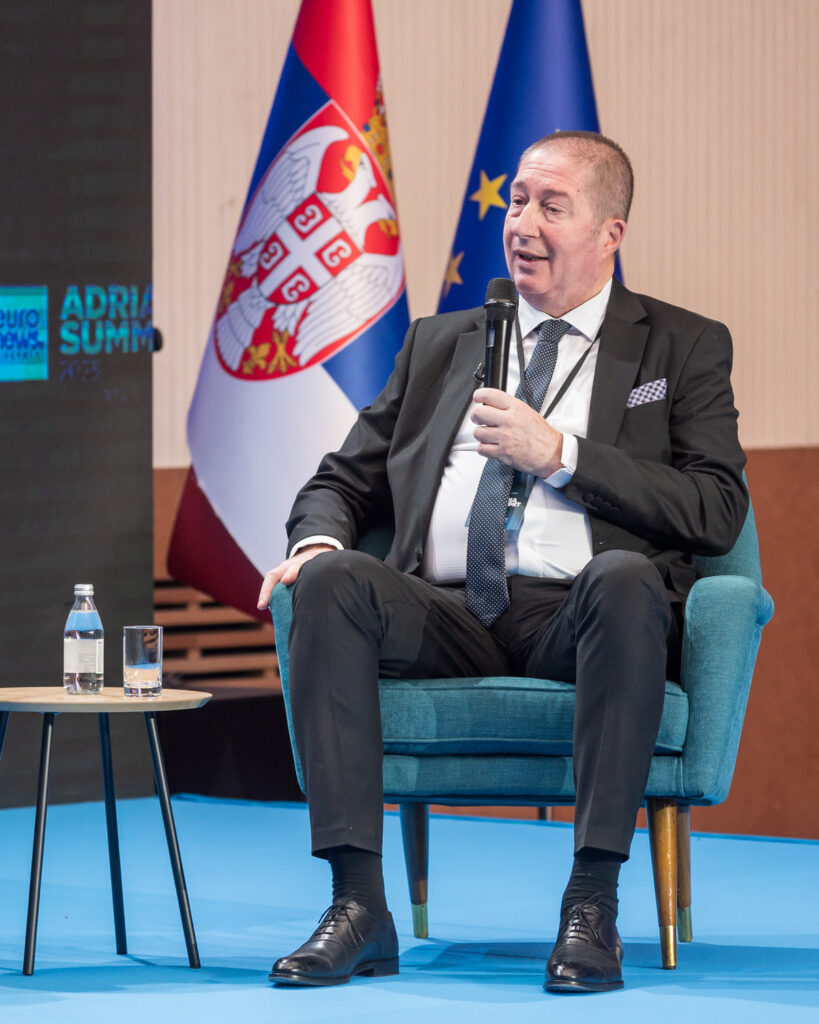
He highlighted operational cooperation in security and the fight against cigarette and drug smuggling, organized crime, high-level corruption, money laundering, and the financing of terrorism. According to him, Montenegro’s reform progress has been recognized on its European path, with the message that “the judiciary needs to be further strengthened,” an area where the U.S. is “a key partner.” Đoković added that Montenegro pursues “a predictable policy of dialogue and peaceful dispute resolution” in the region and believes it enjoys “significant support from Trump and his administration, perhaps even more than before.”
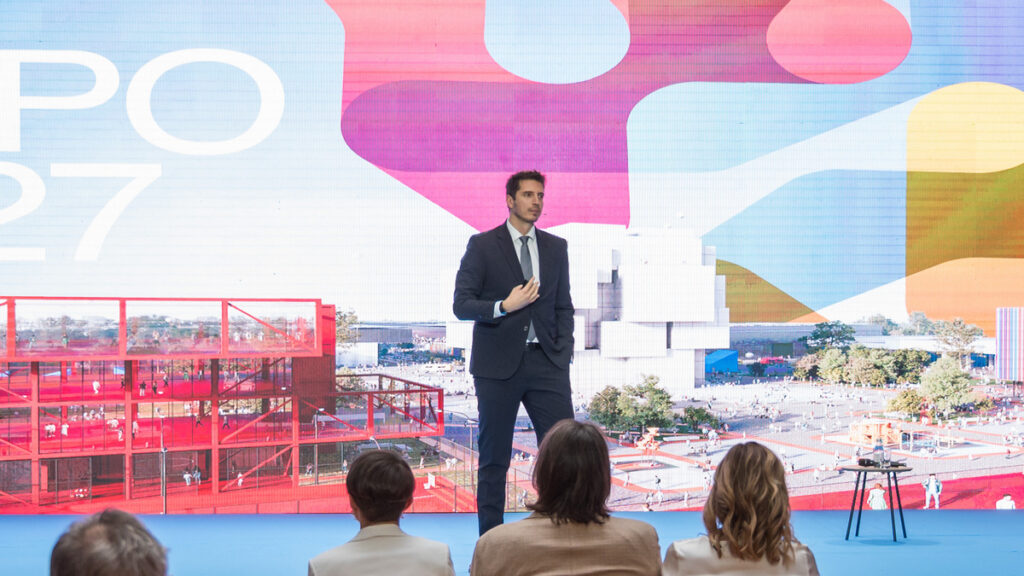
EXPO 2027 was also among the topics discussed during the Euronews Adria Summit. Dušan Borovčanin emphasized that the event in Belgrade is expected to attract between 6 and 6.5 million visitors and noted that the key challenge throughout the 93-day duration of the exhibition will be maintaining consistent quality.
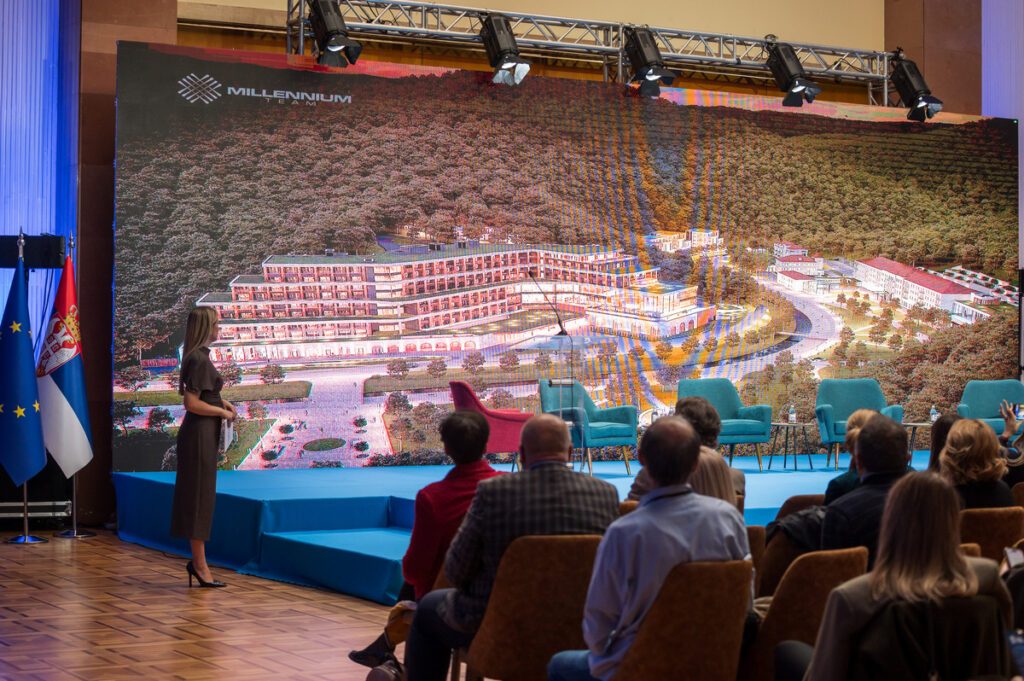
At Panel 2, titled “Money Never Sleeps,” business leaders discussed prospects for 2026. The panelists included Mihailo Vesović, Vice President of the Chamber of Commerce of Serbia; Vladimir Lučić, CEO of Telekom Srbija; Jiří Marek, CEO of Air Serbia; Miloš Milanović from the Executive Board of Dunav Insurance; Bojana Božanić, Director of JP “Gold Gondola Zlatibor”; Nedeljko Elek, Chairman of the Supervisory Board of the Olympic Center Jahorina; and Đorđe Eremić from ElevenS.
Panel 3, titled Media in Politics, Politics in Media, featured Pedro Vargas David, President of Euronews; Suzana Vasiljević, Advisor to the President of Serbia; and Ljiljana Smajlović, columnist at Euronews.rs.
The fourth panel, titled Ambassadors’ Panel: Time of Turning Points, included H.E. Akira Imamura, Ambassador of Japan to Serbia; H.E. Ashot Hovakimian, Ambassador of Armenia to Serbia; H.E. José Veleš Caroso, Ambassador of Portugal to Serbia; H.E. Ambassador of Israel to Serbia, Avivit Bar-Ilan and H.E. Jan Bondi, Ambassador of the Czech Republic to Serbia.

The Euronews Adria Summit concluded with the panel “EU and the Western Balkans,” featuring speeches by the president of the Serbian Progressive Party (SNS), Miloš Vučević, and the president of the SNSD, Milorad Dodik.
The two mainly discussed the internal political situation in Bosnia and Herzegovina. When asked by the moderator, Euronews regional director Minja Miletić, whether Dodik is still the president of Republika Srpska, he replied that he is a former president but would become a future president as soon as he is able to run again. In this way, he indicated that stepping down would represent a victory for the international interventionism of Christian Schmidt and, as he said, the political establishment in Sarajevo.
In his part of the discussion, Vučević emphasized that the entire Serbian people are committed to stability and peace in the region, and that if great powers want peace and stability in the Balkans, they cannot bypass the largest people in the area, the Serbian people. Commenting on the United States’ decision to lift sanctions against him, Dodik noted that this decision reflects a change in Washington’s foreign policy course, pointing out that the U.S., as he said, no longer seeks to engage in foreign interventionism and state-building, but aims to enable issues within Bosnia and Herzegovina to be resolved through dialogue among the three constituent peoples.

During the panel, Dodik reiterated that his political goal remains the independence of Republika Srpska, while Vučević stressed that Serbia will not interfere in Republika Srpska’s decisions but supports the Dayton framework of Bosnia and Herzegovina.
“Under the Dayton Agreement, we were granted political rights, which, as Miloš mentioned at the beginning, began to be undermined the day after the agreement was signed in 1995. We want to exercise those rights, and let them restore them to us. We have no problem remaining part of what is called the Bosnia and Herzegovina community,” Dodik said.
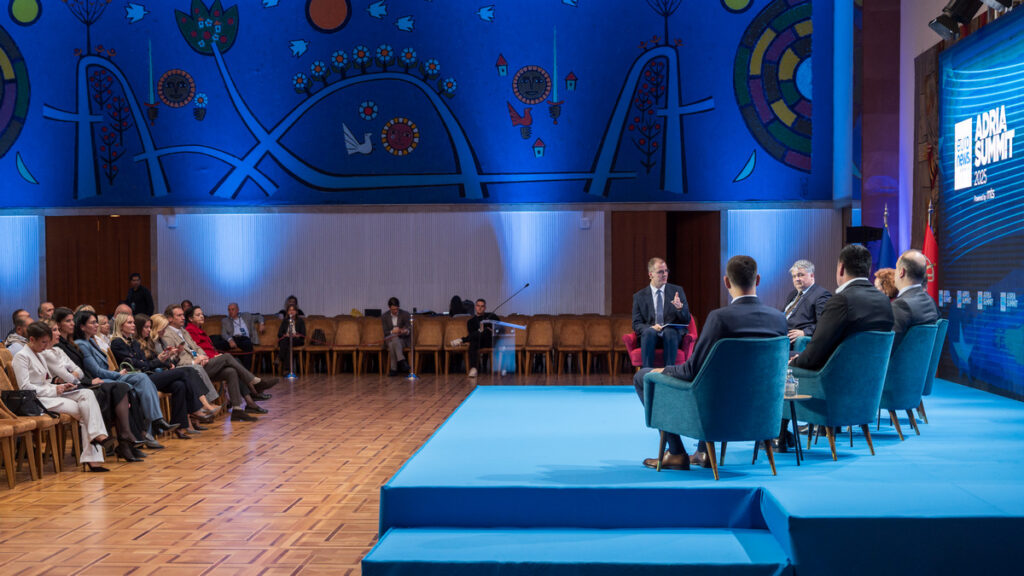
Regarding Republika Srpska, Vučević added: “We do not have the right to dictate or impose policies on Republika Srpska. We respect, love, and preserve Republika Srpska in accordance with Dayton. Everything Republika Srpska does to protect its identity and the original provisions of Dayton is acceptable to Serbia. Just as I am confident that Republika Srpska understands Serbia’s position, and I believe it has never done anything to complicate Serbia’s position—in fact, quite the opposite.”





